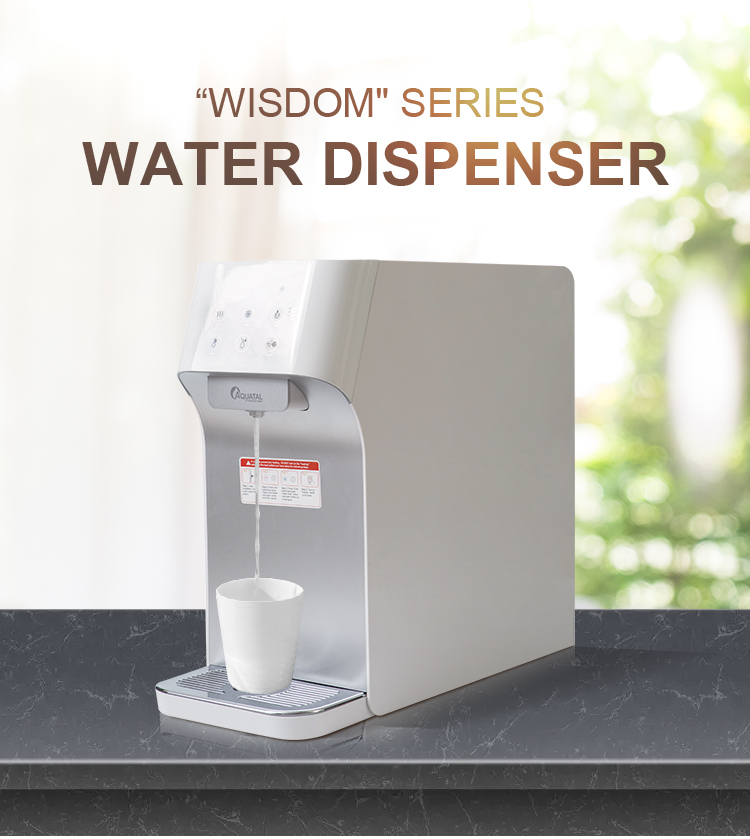Kev xaiv lub tshuab lim dej hauv tsev yuav tsum xav txog ntau yam kom ntseeg tau tias koj xaiv qhov yog rau koj cov kev xav tau. Nov yog qee cov ntsiab lus tseem ceeb uas yuav tsum xav txog:
- Qhov Zoo ntawm Dej: Pib los ntawm kev ntsuam xyuas qhov zoo ntawm koj cov dej kais. Puas yog nws feem ntau cuam tshuam los ntawm cov khoom tsis huv, xws li cov av qias neeg, chlorine, cov hlau hnyav, lossis cov kab mob me me? Kev nkag siab txog cov khoom tsis huv tshwj xeeb hauv koj cov dej yuav pab koj xaiv lub tshuab lim dej nrog cov thev naus laus zis lim dej tsim nyog.
- Kev Siv Tshuab Lim: Muaj ntau hom kev siv tshuab lim, xws li cov lim dej uas siv cov pa roj carbon ua kom muaj zog, cov lim dej rov qab osmosis (RO), cov lim dej ultraviolet (UV) sterilization, thiab cov lim dej ceramic. Txhua lub tshuab siv cov tshuaj lom neeg sib txawv, yog li xaiv ib qho uas daws tau cov tshuaj lom neeg tshwj xeeb uas koj xav tshem tawm.
- 3..Peev Xwm Lim Dej: Xav txog lub peev xwm lim dej ntawm lub tshuab lim dej. Nws yuav tsum muaj peev xwm ua tau raws li qhov xav tau dej txhua hnub ntawm koj tsev neeg. Nrhiav cov ntaub ntawv ntawm cov khoom ntws, lub peev xwm lim dej, thiab lub neej lim dej kom ntseeg tau tias nws tuaj yeem ua tau raws li koj xav tau.
- 4.Kev Teeb Tsa thiab Qhov Chaw: Txheeb xyuas seb lub tshuab muab dej puas xav tau kev pab kho lossis kev teeb tsa. Cov tshuab muab dej uas teeb tsa rau ntawm lub rooj lossis sawv ntsug yooj yim dua rau kev teeb tsa, thaum cov khoom siv uas teeb tsa hauv qab dab dej lossis phab ntsa yuav xav tau kev teeb tsa los ntawm cov kws tshaj lij. Tsis tas li ntawd, xav txog qhov chaw muaj nyob hauv koj chav ua noj lossis qhov chaw uas xav tau rau lub tshuab muab dej.
- Kev Txij Nkawm thiab Kev Hloov Lim: Tshawb xyuas cov kev cai txij nkawm ntawm lub tshuab lim dej. Qee cov qauv muaj lub teeb qhia uas ceeb toom rau koj thaum twg yog lub sijhawm hloov cov lim. Nkag siab txog qhov zaus thiab tus nqi ntawm kev hloov lim, vim qhov no yuav yog tus nqi tas mus li6.
- Cov Nta Ntxiv: Xav txog tej yam ntxiv uas yuav tseem ceeb rau koj. Qee lub tshuab muab dej muaj cov kev xaiv dej kub thiab dej txias, qhov kub thiab txias hloov kho tau, kev kuaj pom qhov xau, lossis cov haujlwm kaw tsis siv neeg. Soj ntsuam cov yam ntxwv no raws li koj nyiam thiab xav tau.
- Lub Koob Npe thiab Daim Ntawv Pov Thawj ntawm Hom Lag Luam: Tshawb nrhiav lub koob npe thiab cov kev tshuaj xyuas ntawm cov neeg siv khoom. Nrhiav cov ntawv pov thawj xws li NSF (National Sanitation Foundation) lossis WQA (Water Quality Association), uas ua kom ntseeg tau tias cov khoom ua tau raws li cov qauv kev lag luam rau kev lim dej.8.
- Tus Nqi thiab Nyiaj Txiag: Teem ib qho nyiaj txiag rau koj lub tshuab lim dej thiab xav txog tus nqi yuav thawj zaug nrog rau cov nqi kho mus sij hawm ntev xws li kev hloov lim dej. Nco ntsoov tias cov qauv kim dua yuav muaj cov thev naus laus zis lim dej siab dua thiab cov yam ntxwv ntxiv.
Kev Pov Hwm thiab Kev Pabcuam Rau Cov Neeg Siv Khoom: Tshawb xyuas lub sijhawm lav uas lub chaw tsim khoom muab thiab qhov muaj kev pabcuam rau cov neeg siv khoom yog tias muaj teeb meem lossis kev txhawj xeeb txog cov khoom.Los ntawm kev xav txog cov yam no, koj tuaj yeem txiav txim siab tau zoo thaum xaiv lub tshuab lim dej hauv tsev uas haum rau koj cov kev xav tau dej zoo, kev teeb tsa, thiab peev nyiaj.
Lub sijhawm tshaj tawm: Lub Rau Hli-14-2023


